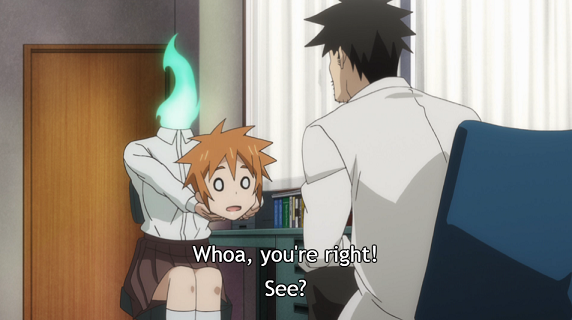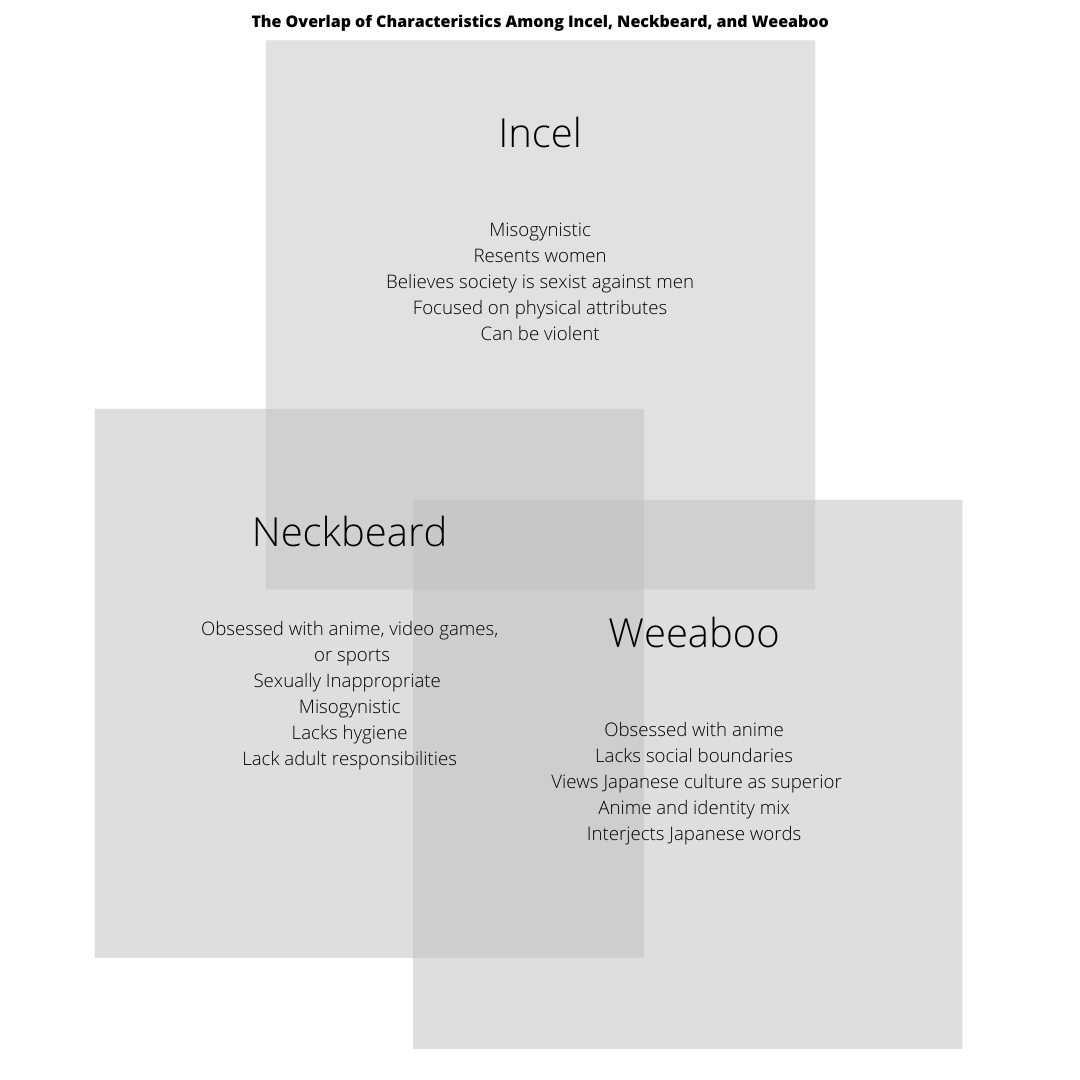
How does a weeb sound? That depends on vocal cord size, lung capacity, language, and–okay, the question deals with the words and references people use. First, what is a weeb? I’ve written an article that defines what a weeb is and how to not be one. But to summarize, weeb is short for the slang term weeaboo. The terms label fans of anime who violate social boundaries such as ignoring body boundaries by standing too close or through inappropriate touch. Any unwanted touch, even if it is on innocent parts of the body, is inappropriate. In short, weebs lack social awareness or don’t care about social norms. Weebs speak with a similar inability to read the room. They speak of inappropriate topics in a given social context. Weebs tend to insert themselves into conversations. While these interjections can be sexual in nature, most of the time, weebs reference everything to anime, manga, or video games. Weebs can also reference Dungeons and Dragons and other fandoms. I’ve had to call out male weebs (perhaps the most common type) who told women they didn’t know how nice their breasts or some other body part looked. Again, there’s a lack of social awareness.
If you are reading this article and worry about sounding like a weeb, you’ve already taken the first, most critical step: self-reflection. Without self-reflection you can’t see the problems you should correct. Beware beating yourself up about your past mistakes. Beating yourself up–regret, guilt, and other feelings–isn’t constructive. Rather, have compassion for yourself and congratulate yourself for reaching this point of awareness. Many weebs never become self-aware enough to see their errors.
Social norms vary by region and culture, but some conventions are universal. First, don’t stand too close or too far from people. You want to stand roughly within an arm’s length of a stranger and within a half-arm length of friends and other people. Look people in the face as they speak. Don’t let your gaze wander from the speaker, and do not look at your phone. Generally, in Western cultures, people look each other in the eyes. But this doesn’t mean you stare. Rather, you break eye contact occasionally. Staring into another’s eyes can disconcert them. Generally, in Asian cultures, eye contact isn’t a convention. Eye contact also varies based on region and individuals. I dislike prolonged eye contact, for example, because I have to watch lips to help my poor hearing. Avoid touching people, especially those you don’t know. As you get to know people, you will come to understand what physical contact they like. For example, some are fine with shoulder touches or touching the upper arm. Some people are huggers. Other people, like me, do not want any physical contact at all.
The context of your environment determines your social conduct as well. The words you use need to be appropriate for the context. Cursing isn’t appropriate for the office. Formal, professional language isn’t appropriate for friends or a barbeque. Many weebs think the situational nature of conduct is disingenuous and so act the same no matter the context. Think of language and conduct as clothes. You wear swimsuits at pools and beaches. You don’t wear suits to pools and beaches. When you first put on a new outfit, it can make you feel strange, but as you wear it day after day, soon you won’t think anything about it. When you first learn to drive a car, it feels tense and exciting. It feels different, but as you drive cars for years the process becomes automatic and natural. So too as you practice situational social skills, they will become automatic and natural. How do you learn these skills? Observation. Notice the distance people stand from each other, how they dress, the words they use, their gestures, and their physical touch. Remember that these people will likely already be familiar with each other. You can’t just interject yourself and act the same way, but these observations give you a bracket of appropriate conduct for that situation. As you observe and experience more situations, you gain experience points and level up. That role playing convention is a good analog to how social experience works.
Allow me to use myself as an example. I’m a hermit by nature, but I’ve learned how to speak to nearly anyone because I’ve worked with the public for over 25 years (yeah, I’m old). That’s a lot of experience points and a lot of social failures. You still gain experience though failed interactions. I’ve spoken with an elderly German couple who had little English; I’ve used my broken Spanish to help many Guatemalans. I’ve used my toddler Japanese to help visitors from Japan. And I looked like a fool (and felt like a fool) through all of it. But I gained experience. You have to put yourself out there and engage with people. People appreciate attempts. Not all attempts will go well. I’ve been screamed at, nearly punched, kicked, and all sorts of other things. It’s just part of working with the public. I’ve been to super ritzy events where even the urinals were made of marble (I felt super uncomfortable). I’ve also been surrounded by barefoot and impoverished Old Order Amish (I felt warmed by their kindness). In all of these situations, you change your verbal clothing and conduct. And you can only learn how to do this through experience. Most weebs lack social experience. They are level 5’s facing a level 95 dungeon. And yes, I’m aware of how weeb that sentence reads.
Beyond experience, you need to develop interests beyond anime, manga, video games, and other fandoms. You can only speak from what you know. So, if those are all you know, you will naturally reference everything you hear back to them. To increase your social skills, you need to increase your intellectual skills. Interesting people read. Interesting people have broad and deep interests. In order to not sound like a weeb, you need to expand your knowledge so you can make better conversation. The best references in a conversation overlap with the knowledge of the speakers while expanding into knowledge gaps. For example, if someone speaks about the current state of politics, I like to reference a similar, if not identical, event from the ancient world. The overlap in the events serve as a grounding point with the ancient world’s lessons acting as an expansion of a knowledge gap. Yes, sometimes I use Japan in this, but most of the time I keep it to Roman history because not only is it more relevant for Westerners but also because I know more about Roman history. But if you lack broader knowledge and if you don’t read, you can’t do this. Weebs are so specialized in their knowledge that they can’t interact outside that silo. Don’t misunderstand. Such in-depth knowledge is great! I could blog a lot better if I had the knowledge of anime and manga as the library’s weebs have. Just be balanced. Cultivate physical hobbies like wood carving or painting or bird watching. If you want to stop sounding like a weeb you need a broader life, a life beyond anime and manga. You need to find multiple topics to geek out about. People around me better know me as the computer nerd with how I geek out about computers and technology. It’s fine to geek out about a topic that people don’t know much about it time to time. Weebs don’t dial this passion down. They tend to speak loudly no matter the environment. It’s better to train yourself to be softspoken to force people to listen to you. I’m not saying whisper soft. Speak softer than the others in the room. This lends dignity to your speech and gives you a rock-like solidity. As people increasingly talk over each other, you remain constant which lends you an air of confidence.
Weebs overshare and don’t ask questions. Instead, most show off their knowledge in an effort to validate or push their anime interest. When I geek out about tech, usually it’s because I was in a conversation about tech and then gallop off. Eventually, I rein my horse in and come back with some sort of funny (or an attempt at being funny) quip. So if you weeb out as you work on yourself, it’s fine. People find such passion attractive. Just pull yourself back and then ask a question. To trick to being socially interesting is to give people space to speak about themselves and to listen. You don’t want to overshare; you want your conversation partner to overshare. You want them to feel heard. So ask questions. Share a little of your experience or opinions and then ask what the other person thinks about them. Weebs bulldoze. They don’t provide space. Granting people space to speak shows your confidence. Speaking too much shows your lack of confidence. While American culture sees those who speak a lot as competent, ancient wisdom–which has withstood more centuries than the United States has existed–shows those who speak a lot show their lack of dignity:
Even at one glance, the dignity of a person’s spiritual stature is apparent. There is dignity in humility and self-control. There is dignity in calm composure. There is dignity in speaking few words. –Yamamoto Tsunetomo
Mysteriousness keeps people interested in you. Oversharing not only dominates a conversation, which people dislike, but removes your mystery. To avoid being a weeb, don’t speak of your passions. Save your mystery for those who are closest to you. Again, ask questions and have other people overshare.
Slipping into a conversation is, perhaps, the most difficult social skill to learn. I flub it even after decades of practice. There’s many different approaches. I have the most luck with the “silent slide in.” This method has you quietly join the edge of a group and catch the gaze of one or two people in the group. Smile. It works best when you know or, at least, are acquainted with one person in the group. It has a creeper effect if the people are all strangers. Then, to interject yourself in a pause, which your approach will sometimes cause, say something like “Sorry, I happened to have heard you say…” whatever caught you attention. Follow up with a question related to the topic that links to your knowledge base. If everything goes well, someone will introduce themselves to you and ask your name if the group is full of strangers. Sprinkle a little self-sharing into the conversation, but mostly listen and ask questions. When this and other methods fail, you will be embarrassed or even rejected by the group, but that’s just part of learning. You have to be willing to look like a fool to learn.
Okay, so let’s get down to the checklist. If you want to avoid sounding like a weeb you need to:
- Cultivate self awareness and reflection. You can’t change what you can’t see.
- Develop interests outside of anime, manga, and video games.
- Aim for depth of character.
- Read books. They make good conversation topics.
- Draw your conversation references to these other interests.
- Ask questions.
- Avoid oversharing and dominating the conversation.
- Avoid violating people’s space and body boundaries.
- Learn what “verbal clothing” is appropriate for different social situations.
- Observe the situation, people’s behavior, and word use.
- Practice approaching people and groups and slipping into the conversation.
- Keep your mystery for those closest to you.
- Practice.
In short, speak of anime and manga sparingly, only when the environment and situation is appropriate referencing them. You also need to practice reading the room. This skill helps you better respond to people and tells you when you should just leave.
To read the room, ask yourself questions like:
- How are people dressed?
- What expressions do you see? Are people relaxed or uptight?
- How have people grouped themselves? Do you see cliques or do people flow among groups?
- How loud is the space?
- What types of conversations do you hear?
There’s nothing wrong with having a passion for anime and manga and video games. The problem with being a weeb deals more with your lack of social skills and your lack of interests outside of anime. These take practice to develop, and there’s no other way to sidestep the work. You have to grind your social levels. While all humans, including hermits like me, need social interaction, social interaction is a skill that needs to the practiced and maintained. Let that encourage you if you are a weeb. You can stop sounding like a weeb if you do the work. And the work can be fun. It’s fun to learn new ideas and discover new interests. Who knows, you may even find an interest that will surpass your passion for anime and manga.






I like it very much! Although I’m not a weeb, I like the part about “verbal clothing”, reading the room and listening more than sharing. I think these are some common wisdom even in different cultures(I’m from China mainland).
These habits can be difficult to develop. Listening and remaining silent, especially when you disagree with someone, pose the most challenge.